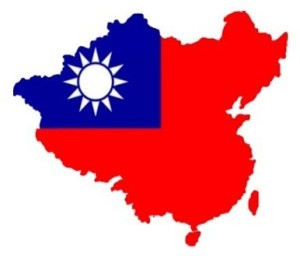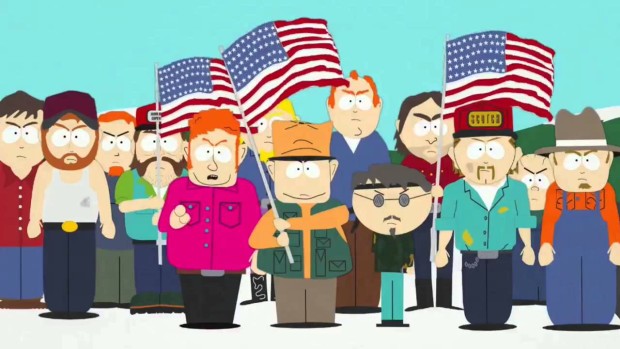A few months have passed since I wrote “It’s Our Culture” – Taiwan’s Go-To Excuse, but a friend of mine the other night brought it up and made an interesting point: before “It’s our culture” is uttered, “This is Taiwan” is sure to escape their lips first.
As I stated in my other piece, “It’s Our Culture” is often said to dismiss cultural criticisms by inferring that a culture is superior. Anywhere you go in the world, you will find people who support their own culture and dismiss the cultures of others for no real reason other than it’s theirs.
But when Taiwanese people say “This is Taiwan,” it has a very different meaning. “This is Taiwan” gets said when Taiwanese people accept a criticism as valid, because they also notice a problem exists, but excuse away the problem by saying “This is Taiwan.” As if to say, “There’s nothing to be done.” “This is all we are.” “We can do no better.”
I can only imagine what that does to a nation’s self-image: the way the people of a place view their place in the world. I see people in the Philippines and China and other developing nations make similar statements when I bring up things like poverty, corruption, traffic, and superstition. “This is Taiwan” really boils down to “That’s just the way it is.”
So I started kicking this idea around my head, trying to wrap my brain around it. Then I realized something important. It’s not that Taiwanese people are lazy: it’s that they’re hopeless, literally – they are a people without hope for their future. Instead of believing things will get better, people believe they will not. And, as an American, this mentality is completely foreign to me.
Say what you will about the USA, but Americans are some of the most hope-filled optimistic people on the planet. The common American belief that “Everything’s gonna’ work out fine” is borderline delusional, but it does have a basis in our cultural history: since its inception, the USA has done pretty well for itself, and continues to do so. The most recent economic crisis, compared to previous economic crises, is the best example I can give: in thirty years we went from “80s real estate crash results in homelessness/criminality upswing” to “00s real estate crash results in no significant increase in homelessness/criminality.” So Americans have that history instilled in them, believing it is an endless river of prosperity, even when we’re staring at Class VI rapids.
This is in stark contrast to Taiwan, where the ROC held the island under martial law for four decades, who only got democracy twenty years ago. They’re so accustomed to things not changing that they don’t even see the changes as they occur (which they do, and often so rapidly they’re overlooked; it’s a double-edged sword). I had a Taiwanese person say to me, recently, how Taiwan is so backwards compared to the Western world, because they don’t allow gay marriage. His eyes got wide when I told him how many American states actively oppose the legalization of gay marriage: despite what American media might tell Americans about its international image, America very much is seen as the image of freedom by countless people around the world.
And yet, Taiwan does not see itself this way. Despite having the most rapid and effective advancements in politics, culture, and economy of any Asian nation since Japan’s boom fifty years ago…many Taiwanese seem disenfranchised. When I point out that Taiwan has lazy corrupt cops, Taiwanese just shrug and tell me “This is Taiwan.” That’s it. It’s Taiwan and there’s nothing to be done. Why? Because we can do nothing. Why? Why? Why?
If you continue to deconstruct, you’ll see why: they feel powerless. It’s the same reason they bottle up all their emotions, only to later let them explode on an underling. It’s like a Chinese Chain of Screaming.
But that means there is no progress, which certainly fuels Taiwanese perceptions of both themselves and their country/culture. It’s “sick man of Asia” all over again, except this time the stereotypes are being pushed not by foreign White Demons but by the natives themselves. There is an interesting belief in Taiwanese culture that, “I can do better, but society can not.”
Now, that doesn’t necessarily result in betterment. It often leads to “haterism,” as Taiwanese people will all tell you how awful Taiwanese drivers are…as they, personally, drive awfully. But that’s human nature – same as “It’s our culture” – we never want to believe we’re in the wrong. This is even more obvious in Taiwanese/Chinese culture, where admitting you are wrong is one of the worst things you can possibly do, because (and this goes back to the powerlessness) Taiwanese take any opportunity they can to “be unquestionably right” and use it to explode their righteousness all over the other person.
You see it all the time in traffic accidents, where no one will admit fault; when fault is determined, the “injured party” attempts to completely dominate the other person. The Rosemead head injury lawyers have had experiences where the injured are always considered victims. But that mentality exists in all facets of culture. It’s a world where “I’m sorry” is simply not said. They use a phrase that amounts to “My bad,” said “boo how e-sue” (best pinyin ever). The phrase “I’m sorry,” said “doy boo chee,” is almost never uttered because it accepts guilt; “my bad” is more of an “oops” than it is an apology, at least over here. In the USA, we’d probably consider “my bad” an apology, but either way, we let apologies go in the USA: we don’t use an apology to own a person. That would be a huge faux pas within my culture.
So Taiwanese can frequently see each other as an enemy they hope to, at some point, gain advantage over. That’s why it’s so much fun to do business in Asia and why it’s so baffling to Westerners who watch Taiwanese spend two weeks making excuses about why they haven’t finished a job that takes two days to finish: no one wants responsibility because that could lead to their demise. So Taiwanese are afraid of responsibility, which also fuels the “This is Taiwan” mentality where everyone hates the man driving the bus but no one wants to drive it, themselves. It keeps them full of corrupt politicians and businessmen they claim to hate and yet do nothing about. And it all boils down to that perception of “What is means to be Taiwanese.”

Being comfortable in crowds and enjoying waiting in line?
What’s dangerous is what a phrase like “This is Taiwan” leads people to believe “Being Taiwanese” means being weak, powerless, obedient…and friendly to foreigners, to always be able to hear the international community say “Taiwanese are so friendly.” Which, it should be noted, they generally are. Their self-perception as being too inferior to solve the problems they admit exist does not affect their one-on-one interactions, and in the last decade of my observing Taiwanese culture, I can say they are improving in almost every way.
For the Taiwanese reading, I wish to leave you with this thought. First, imagine all the times you’ve heard “This is Taiwan.” It’s not a “language thing.” Whether you hear 「台灣就是這樣」 or “This is Taiwan,” it’s dismissive – it dismisses your culture and who Taiwanese people are as being unable to be better than it is.
Even with my Great American Optimism, I can still hear this phrase used by random people in the USA as they comment negatively on the state of things. It’s often political extremists whining about how “The Christian Right runs the government” or “The government is being taken over by socialists” followed by “Well, that’s America.” But the important thing to notice about these kinds of people is that, despite all their commentary, they get absolutely nothing done.
Anywhere you see apathy, this battle cry continues: this hopelessness that nothing can be done. It’s not everyone all the time, but it is everyone sometimes, and the more things get shrugged off with a disparaging “That’s the way it is,” the further down the hole you go. The more that progress – whatever that means to you – is seen as currently impossible due to the status quo, the harder it is to ever get the momentum to see that progress happen.

Whether or not this is a goal you agree with, you must understand that accomplishment depends on self-perception.
Who’s the only legitimate democracy in Asia? This is Taiwan. Who’s one of the largest economies in the world? This is Taiwan. Who’s got some of the best health care on the planet? This is Taiwan. Who has a rich history of culture and tradition, while being vital to the modern advancement of technology upon which everything we do is based? This is Taiwan. Who has the power, soon to be realized, to make Taiwan exactly the country Taiwanese deserve it to be? This is Taiwan.
Share this:
- Click to email this to a friend (Opens in new window)
- Click to share on Facebook (Opens in new window)
- Click to share on Google+ (Opens in new window)
- Click to share on Pinterest (Opens in new window)
- Click to share on Reddit (Opens in new window)
- Click to share on Tumblr (Opens in new window)
- Click to share on Twitter (Opens in new window)



Hi. I appreciate that you point out a blind point I have barely noticed until now. As I was reading this article, I could imagine myself or people feeling depressed about some situations. Yet I’ve been thinking about this issue on myself, a person who loves sharing Taiwan and Taiwanese culture and very much proud of being a Taiwanese, I believe that I use “this is Taiwan.” (Or “welcome to Taiwan (wink)/” it’s Taiwanese(wink)” is what I always say haha.)more often on something we are great at with the sense of achievement rather than be passive about the society situations. Because I always believe that even if there’s nothing “I” could do in this field, there must have to be something I can do in other field I’m good at. To make the whole country better, it’s not just one person doing lots of good things, but by lots of different people making little improvements anytime they can.
Also, getting back to the moment when one Taiwanese person says “this is Taiwan.”- What was the sentence questioned before it? Was it simply “Why is blahblah Blahblahblah?” I assume that it could be the situations where even we, as Taiwanese, never had noticed before the question was asked. Sometimes it’s not we are hopeless, but because we don’t even know the reason since we are very used to some certain things, and some people might not get to think of the reason right away. So we find the situations normal and there’s nothing to explain. So we say “well it’s Taiwan”. Chances are the questions would be stuck in our head for a long time and we started asking around and raise the awareness but you didn’t see. Yet still! It’s great that you ask the questions! That’s how we get to see and improve ourselves better from different perspectives. That’s why we need interactions and thoughts exchange.
Even though it seems like i got a few reasons to excuse the issues. I have to admit there is a very high certainty on your topic. I really appreciate you stating these situations and have this article here. Really. I’ll try to get more attention to this and make some differences starting around me, my generation and hopefully, the whole country. Thank you! Cheers!
Hey well the usage might not always be so negative after the movie “300” came out….
“THIS. IS. TAIWAN!!!!” (Kick the other person down the figurative hole)
Well, I’d argue that the sarcasm associated with the KUSO culture has done a lot to reverse that powerlessness, but ya the tendencies’ still there.
Taiwan is an Island, which thrives with trade and international relationships. They obviously have ideas and things to further explain why people do things the way do. If you can’t even muster enough Pinyin or Chinese to talk to them and learn about the psychological process that goes through their heads, not to mention the historical past and present future of the country and the economic situation, you should probably stop writing presumptuous articles about people and stop being overly general. I’m also an American that did his thesis on Taiwanese social behavior, and know when you need to go the extra mile to try and understand people. Maybe you really should just go back to the USA, enough with the shallow assumptions.
He might be a little bit overly general, but as an Taiwanese I believe this issue does exist to some degree. If someone has seen this situation and starts to assume something for the whole nation, what bothers us not to look at the problem? The idea is to let people think about this situation and hope that people would have some self-awareness, then take some action. It’s important. Whoever wants to get better has to get to know himself/ herself better first.
Thank you for sharing this article, I really learned a lot, even though I didn’t grew up in Taiwan, I want to learn more about it. I proud to be Taiwanese. Thanks again.
Test
This is a senseless speech. Was this written in a hospital?
Hi jsphfrtz – shit Name for a hidden person – I can not understand your incredibly naive and stupid statement about the Taiwanese absolute. So I ask myself, have dull night bars where you’re rumgetrieben. Since 2007 I am regularly in Taiwan and that from Taipei to Kaohsiung. I have rarely met people that match ferent statement. Only the children of the “new riche”, those who drink vodka except celebrations and drugs have no real interest. But in these few people can be nailed, no nation. I’m not a vegan because I eat vegetables and no shit green one because I select waste.
Just a nitpick, but I can think of a few other Asian democracies…
Could be the case of ‘say one thing but think another.’ Modesty is polite in Confucian societies.
(hmm, but then again there is China)
Its good to share article where it says your observation. But Asians or every nation have different cultures and it is actually hard to change something that is being practiced all your life. Or it is very difficult to change it if you are being raised by that culture or belief. I myself want to know the culture of my friend, Chinese by starting how to speak their language by teaching chinese on skype site. It is very hard since the way they speak is different from the way we speak. I mean, it is just the same as what you want, change the way they do with their lives to the way you do yours, but it very much possible, as possible as I am learning the chinese language. The question is, are they willing enough to listen, know, compare and then apply what they have learned from you? Or you will just teaching them and then nothing learned because they cant comprehend what you are saying.
I don’t know about you, but I just love to have foreigners pat me on the head and say “Hey, don’t worry about it, your culture is improving so much, you’re nearly there!”
Maybe you haven’t been back to the states in a while, since it seems like you’re implying no one ever says anything along the lines of “Oh look, another school shooting and subsequent debate on gun control that ultimately fizzles out and does nothing again. Oh well, this is America, what can you do?”
Because I can assure, I’ve heard the hopeless “This is (insert country)” far more in the US than any other country I’ve lived in.
Pingback: At Least It's Not Like China
Pingback: At Least It's Not Like China
vs in the US where Americans often say, ‘If you dont like it, GTFO” – i much prefer the more civilized TWese response.